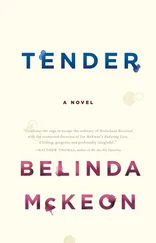‘He gave me the topper and the conditioner nearly for nothing,’ his father said, gesturing to the corner of the shed, where there stood two more new machines. ‘I haggled him down till he was nearly crying. He couldn’t get over what I got him to agree to.’
Mark heard himself saying the words before he had given them permission to be sounded. They sprang forward of their own accord. ‘Which was?’ he said, an edge in his voice like a warning.
His father had never been willing to talk to Mark about money. He might tell him the price a cow had got at a mart, or the price of a machine he was mulling over in the Buy and Sell , but anything more than that, he would not share. Anything more than that, he kept private. He did not even tell Mark’s mother. Who was spinning into view for Mark now as he looked at what his father had done. Or something belonging to her was spinning into view. Something she had left behind.
‘Where did you get enough money for this?’ he said, and even before he had finished the question he was certain of the answer.
His father’s face changed. In seconds it seemed to age all over again. ‘I made my money,’ he said, and he turned away.
‘You used Mam’s money,’ Mark said, and he grabbed his father’s arm. ‘Didn’t you?’
His father shook him off. ‘That’s none of your concern.’
‘Is it none of my concern either what you did with the bales?’ Mark stepped around to face him. ‘Where are they?’
His father said nothing.
‘You sold them?’ Mark demanded.
His father’s voice was whittled with scorn. ‘I hardly fucking gave them away.’
Mark stared. He stared at the back of his father’s head, a whorl of grey around a scalp of brown. He stared at his hands, the hands that had rested on his daughter’s head half an hour before. Her tiny head. His heavy hand. He stared at the dirt on the shoulders of his father’s overalls, at the ridged nape of his neck. The skin was browner there still, weathered by more years, more summers than Mark had known, than his mother had got to know, than Joanne had come anywhere close to knowing. Over his father stretched the parts of the shed that Mark had never seen before. The high corrugated arches of the roof. The rafters, rusted and shadowed. The cobwebs hanging low, heavy and clumped as nests of bees. The mottled concrete of the corners, naked to the air for the first time in years. His father had never let this space go empty; he had always filled it with hay again before the back walls ever had a chance to show. Now the tools that had always been kept by the door were thrown in a heap on the ground: the graip and the pitchfork, the billhook, the sledge, the shovel with its reddened handle, the yard brush, the loy. Mark stared at them.
‘The cattle,’ he said, and his father shook his head.
‘There’ll be other cattle,’ he said in a low voice.
*
Mark found what he was looking for without difficulty. Yet still it was not what he had expected to find. It was in the old biscuit tin where his mother had always kept bills and other envelopes, lying over a pile of mass cards. A sad-faced Jesus tilted at him as he lifted the receipt from the box. It was thin, pink, folded once; it was covered with his father’s writing. The name of his father was the first thing he saw. The name of Joanne’s father was the second.
He blinked. He squinted. He could not be seeing what he thought he had seen. But it was there. His name. Frank Lynch . And then, Mark saw, there was something else after it. Some squiggle, some symbol, some mark. He stared at it, willing it towards meaning, and then he got it. He untangled it. Jr. Frank Lynch, Jr. It was Frankie’s name: it was what he would have been christened. It was also a name he had never been called for as long as Mark had known him. But Mark’s father must have felt the need for some kind of correctness as he filled out the docket. Some kind of formality. Received from Frank Lynch, Jr , the crinkled sheet was inscribed, and halfway down, the blue ink in which his father had written Cows (18 Chr, 5 Her, 4 Fr) / Heifers (9 Chr, 3 Her, 1 Fr) / Bullocks (9 Chr, 1 Her, 2 Fr) had faded to nothing but pressure on the page, and Calfs 24 (16 Chr, 4 Fr, 4 Her), 1 Chr Bull and Round Bales 342 (186 Hay / 156 Silage) were in black ink, stronger and surer, as was his father’s signature, and the date, October 15th. And the price, underlined twice like a word on a placard.
It had been years since Mark had gone with his father to the mart in Edgeworthstown, years since he had stood, stick in hand, beside the closed gate of a cattle trailer while a buyer handed his father a cheque. A pound a pound, the price had been then, and the men would joke as they shook hands; the buyer would say that the trailer was only half full with the cattle, that he had thought they would pack it out, and his father would retort that the cattle were only half price; the buyer would tell his father not to go too far away on holiday with the money he was giving him, and his father would promise to send him a postcard. Often, when Mark was young, the buyer would pat him on the head and tell him that he’d know how to spend the money for his father, or something like that, and his father would say that he would know well. And the men would laugh, and Mark, not even fully understanding, would laugh too.
And the child that Mark had been would have been able to see, now, that this price was too low. It seemed three grand, maybe even four grand short of what it should have been. The cows were all young and strong, the calves well fed: he had seen them coming on all summer. And the bullocks were heavy bastards, and the bull — the bull was built like the truck he had arrived in. Mark closed his eyes. He saw the empty fields, the empty sheds, the empty stalls. He saw the empty mornings, and the stretch of the days, and the dog racing around looking for the last of the scent, looking for something to worry, something to watch. When he heard the door from the yard, when he heard the tread of his father’s boots in the back kitchen, his first instinct was to stuff the receipt back into the biscuit tin and throw it back into the press. But he stopped himself. He stopped his own arm as it twitched and as it climbed. He turned.
*
There were things that seemed unsayable; things that seemed impossible to push over the surface of thought. There were truths, or what seemed like truths, lodged in the walls of the mind; there were summations, pronouncements, accusations, formed and moulded and added to over months and over years, curling and stretching and nestling in the spaces they had made for themselves.
The extraordinary thing was how they turned out, all of these things, not to be hiding after all; not, after all, to be anywhere out of reach. They turned out to have been waiting, to have been poised. They came to each man’s lips like lines that had been long ago learned for a play never staged; they came into the room like over-praised children, sure of themselves, proud of their presence, never for an instant imagining that they ought not to be there. Never for an instant intuiting that they might have burst in too soon or too loudly, in too large a number.
Mark went first, because Mark had the evidence; the pink slip of paper that seemed, in the moment that he held it up to his father, sharpened to a switchblade’s edge. In that moment, in a rush of self-certainty that was almost like joy, Mark thought that there was nothing his father could say, nothing his father could send at him that he could not swipe aside and send shattering against the wall.
But he had forgotten. How had he forgotten? His father was so good at this. He glinted at the scent of it. He was an athlete, opening with light shots, weighing the return. His father saw where his opponent was willing to go; he saw, with a sliding thrill, the terrain they thought they could handle. Then he went deep, went fast, moved as though on ice through convolutions of his own invention, through spirals that could not be anticipated and could not be stopped; he was fluent, exhilarated, alight. When he shouted, when he sneered, when he spat out his verdicts and his vehemence, he was like a man thirty years younger; like a man younger than his son. Mark stared at him. It was almost wonder that he felt for him, watching how he soared. It was a kind of pride, a kind of awe.
Читать дальше












